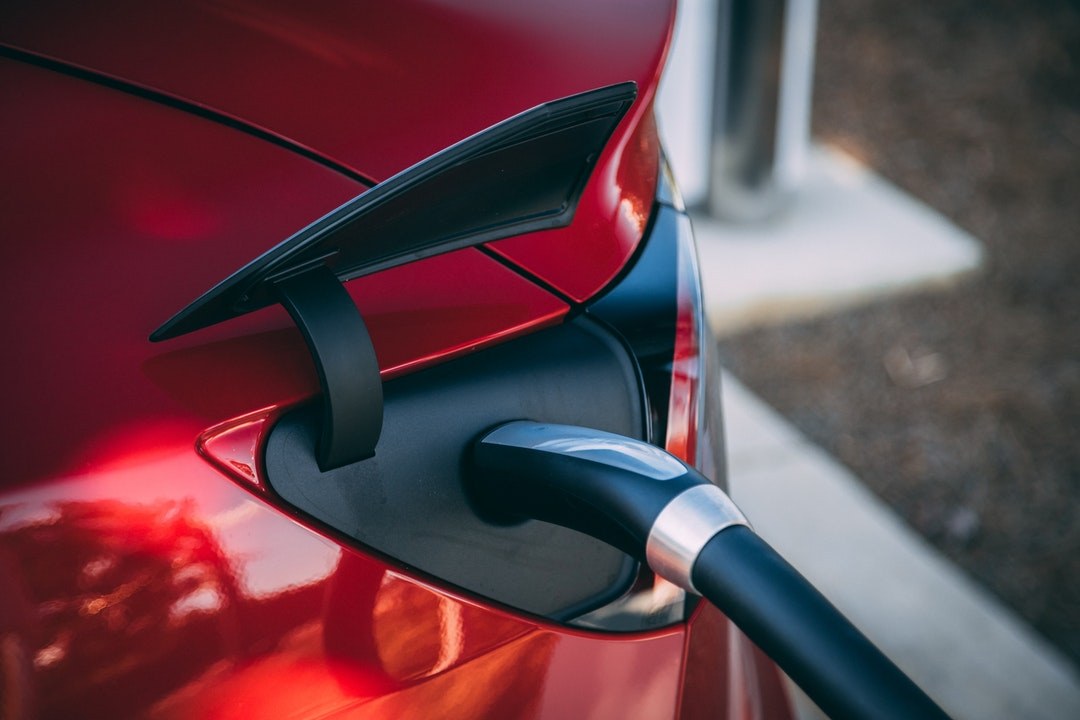In the year 2020, Norway was the first country where new electric cars outsold traditional engine cars, taking 54.3% of the market share. In the same year, the UK announced they are banning all brand new non-hybrid engine cars from 2030.
So, is it time for Americans to follow Europe and pay notice to the future of driving? Well, we take a look at various factors that will influence your decision and see if now is the time for you to plug in and charge.
Part One: Buying an Electric Car – An Overview
Did you know that electric cars came first? They dominated the roads until Henry Ford brought out the first affordable combustion engine car. Now, the world is coming full circle. Many have turned to renewable energy resources and electric vehicles to power their journeys in today’s eco-conscious world.
But before we look at the average electric car cost, here are some other reasons, you should consider an all-electric vehicle.
GROUND-UP ELECTRIC VEHICLES ARE MORE SPACIOUS
If you take a look at a ground-up electric car, you’ll notice that the wheelbase is closer to the front and rear of the vehicle because there’s no engine. This results in more internal space, so you can save money buying a physically smaller car that’s the same size inside.
ELECTRIC CARS ARE QUICK
In big cities, you’ll see lots of electric cars. Because they don’t have an engine, there are no gears to change through, so the torque is instant. This makes them brilliant for nipping through traffic and times when you need a sudden burst of speed like a highway junction.
THE COLDER THE CLIMATE, THE BETTER THE HANDLING
If you live in the mountains or live further North, you’ll find driving an electric car is effortless in the snow. Especially if you opt for rear-wheel drive or 4-wheel drivetrains.
This is a combination of its instant torque, smooth acceleration, wider wheelbase, and bulkier design. Therefore, it’s no surprise that it’s the Scandanavian countries that are selling the most electric cars right now.
INSTANT HEAT AND COOLING
Most electric car owners will tell you that their favorite feature is setting a timer for their heating or AC to come on in the car. When the weather’s extreme, there’s nothing worse than waiting ages for your auto to defrost or cool down.
And, the best thing is, you can do all this while your car is charging up – That’s not easy to do while putting gasoline in your car at the gas station!
CHARGE WHILE YOU SLEEP
It’s a myth that electric cars waste your day. They indeed take longer to fill up, but charging off your home electricity takes less than ten seconds. You can get out of the car, plug into your home charger, and charge it overnight while you sleep.
And, most people need to stop on long journeys for a restroom break anyway. So charging up for a few minutes while you stop and stretch your legs isn’t as big an inconvenience as many suggest. Or, if the journey is too long, you can always take alternative transport or get someone to do it for you.
NEGATIVES OF AN ELECTRIC CAR
The main negatives everyone talks about are range, battery degradation, and electric car cost. But, all three of these myths can be either debunked or challenged in ways you probably haven’t considered before.
Range Anxiety
Ever heard that saying, “It’s the driver, not the car”? Well, that’s the same for running out of gas, or in this case, electricity.
It’s undeniable that range anxiety is a thing in electric cars, and we’d be naive to not mention it. But if you’re the kind of person that runs their car on a quarter-tank every week, you’re probably running on less range than an electric car!
If you’re in need of a more logical answer, ask yourself what the longest distance you drive in your current engine car is. Safety guidelines recommend a 15-minute stop every 2 hours, which on a highway cruising at 60mph is 105 miles. Therefore, allowing for a reasonable buffer, most people won’t need a car with more than a 120-mile winter range.
If you charge up at a rapid charger, which in most cases the electric car cost is the same to charge as a gasoline car, you’ll get your 120 miles of charge in 15 minutes, provided that your car can take a 100kW charger.
If it just takes less than that, you can always use your time productively, or if you are lucky enough to drive a Honda E, you can play video games on the dash via the HDMI port!
Battery Degradation
Battery degradation is well-documented online. Some social media users have even reported losing over half their battery due to extreme heat exposure. But this isn’t as much of an issue as it used to be, so if you’re buying anything within warranty, you needn’t worry about degradation.
This controversial topic comes down to the Nissan Leaf. The Nissan Leaf was always intended to be a spacious city car for cooler climates. Many horror stories that have been reported in North America tend to be in the Southern states.
But this is changing. Firstly, nearly every new electric car on the market comes with battery cooling and heating technology to not lose as much range or quality as other electric vehicles.
Secondly, companies worldwide have found innovative ways to replace the batteries and fit extenders, which still works out $5000 cheaper than a car with an equivalent range in their resident markets.
Part Two: Are Electric Cars Cheaper to Run?
There’s an easy way to work out if an electric car is right for you, and that’s some clever math. For our example, we’ll use national averages in the USA from February, but check your own car’s numbers as they may differ significantly.
For Electric Vehicles, we’ll be using figures from 2016. Although battery technology is becoming more efficient, larger electric cars with the ability to tow are keeping the efficiency low. So for consistency, we’re sticking to the lower-efficiency estimates and sticking with the facts.
MAINTENANCE COSTS
Reports in recent years have shown that typically, owners of electric vehicles are spending 1/3 of their engine equivalents’ maintenance costs. So with the average American spending approximately $1000 a year on maintenance, expect your used electric car to cost around $350 in maintenance.
There will still be a small saving for new cars, albeit negligible due to more extended warranties. For example, brake pads rarely need replacing an electric vehicle due to regenerative braking from the motor. In fact, they’re used so little, the Porsche Taycan advises replacing the brake pads based on time (6 years or 60,000 miles, in case you were wondering!).
And crucially, nobody knows how long the average electric car will last. The oldest electric vehicles are already outliving their gasoline counterparts. So, time will tell if savings stack up further until the chassis corrodes or become write-offs.
FUEL COSTS
Here’s a list of averages we’ll be using in our calculations:
Price of Gasoline: $3.07 (Source)
- Average Fuel Efficiency – 25 miles/gallon
Price of Electricity: $0.16/kWh (Source)
Average Efficiency: 3.5 miles/kWh (Source)
If we divide the price by efficiency we get the following results:
- Gasoline Cost Per Mile – $0.12/mile
- Electric Cost Per Mile – $0.04/mile
As we can see, the rumors are true that the average electric car cost is about one third the cost of gasoline. The average driver in the USA drives 13,500 miles a year. So, we can now multiply the electric car cost per mile by 13,500 and work out the difference:
- Gasoline – $1620/year
- Electric – $540/year
Therefore, the total fuel savings compared to the average car come in at $1080/year. That’s a huge deal.
If you’re thinking of picking up a car but the journey is daunting, it’s worth having a look at companies like ours that transport your car for you, saving you hours of driving from one place to another.
IS THERE A TAX CREDIT FOR ELECTRIC CARS IN 2024?
There is! But not for all cars, and not for everyone.
As it stands you’re entitled to a $7,500 tax credit when purchasing a brand-new electric car. However, that depends on whether the car company has enough credits remaining to give out. Tesla for example ran out of credits very quickly when their Model 3 was released, so it’s worth checking first to avoid disappointment.
Then, factors such as your income and how much income tax you owe that year may reduce that $7500 amount. Plus, you can’t carry any unused allowance over. And don’t forget this doesn’t include used electric cars either.
So it’s important therefore to make sure you do your research before deciding to buy an electric car for this reason alone.
Will Electric Cars Become Cheaper?
It’s hard to say. There’s talk everywhere of numerous manufacturers aiming to hit price parity with their existing gasoline models by 2025, and battery prices have already dropped 90% in the last 10 years. So it’s almost sure they will be cheaper, just nobody knows precisely when.
That said, with the increase in supply comes an increase in demand. We’re already seeing the average price of a used electric car going up in price both here and abroad. So, expect a period of uncertainty until most Americans are buying an electric car, which is likely several years away.
What is expected, however, is a considerable depreciation in the value of gasoline cars. Many experts expect gasoline cars to become a luxury item reserved for the fanatics and the elite. New sales will eventually become outlawed, and the future becomes electric. It won’t be long before affordable electric cars move beyond the old or limited small electric car choices available today.
Is It Worth Buying An Electric Car in 2024?
It’s not surprising that countries in Europe have taken to EV adoption much quicker than the USA. Gas prices are almost double, electricity prices only fractionally higher, plus the average European has a shorter commute than the average American. Plus, in the case of the Nissan Leaf, battery degradation is more severe in warmer climates. In Scandanavia, in particular, electric cars handle exceptionally well in snow.
That said, surging interest in 2023 is set to continue in 2024 and beyond as more manufacturers embrace the change. Nobody knows if Henry Ford would have predicted Ford releasing electric cars such as the Mustang Mach E over a century later. Still, there’s no denying the future is here to stay, whether you choose to embrace it now or in years to come.
If you’re thinking of buying an electric car but need it transporting across the country, try our car shipping cost calculator today, and see if our excellent prices mean you still save money!



